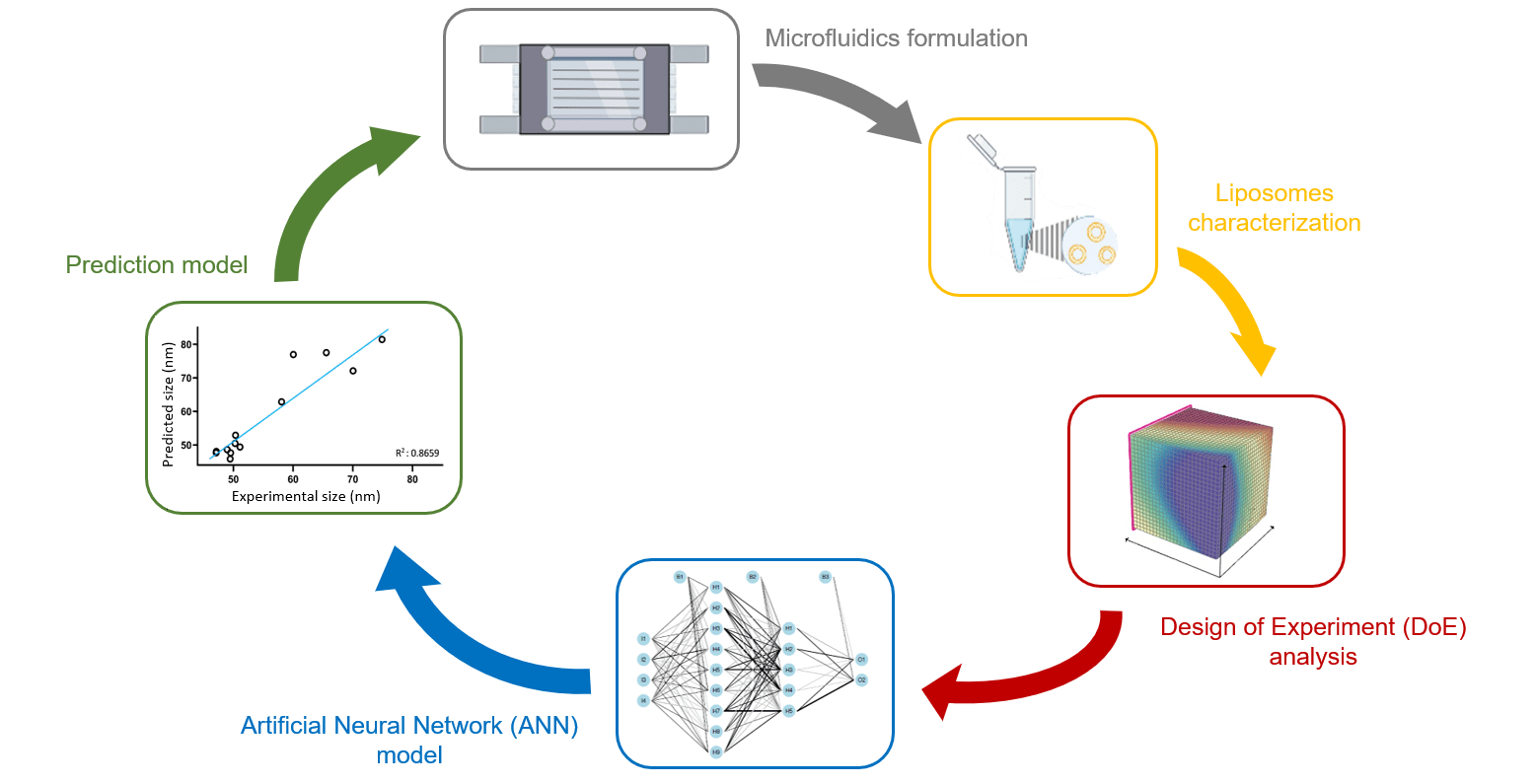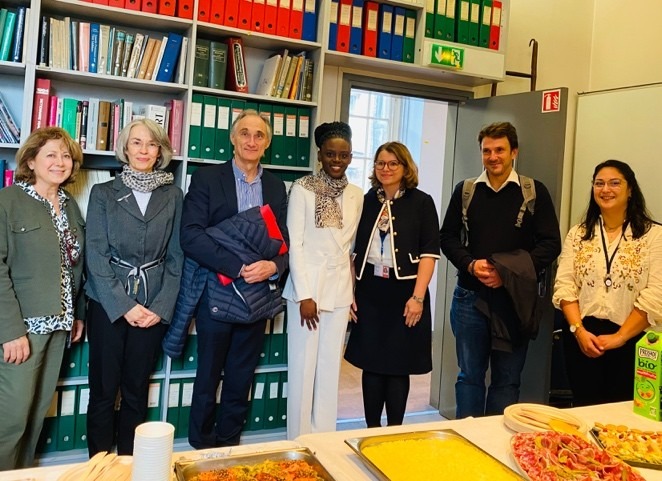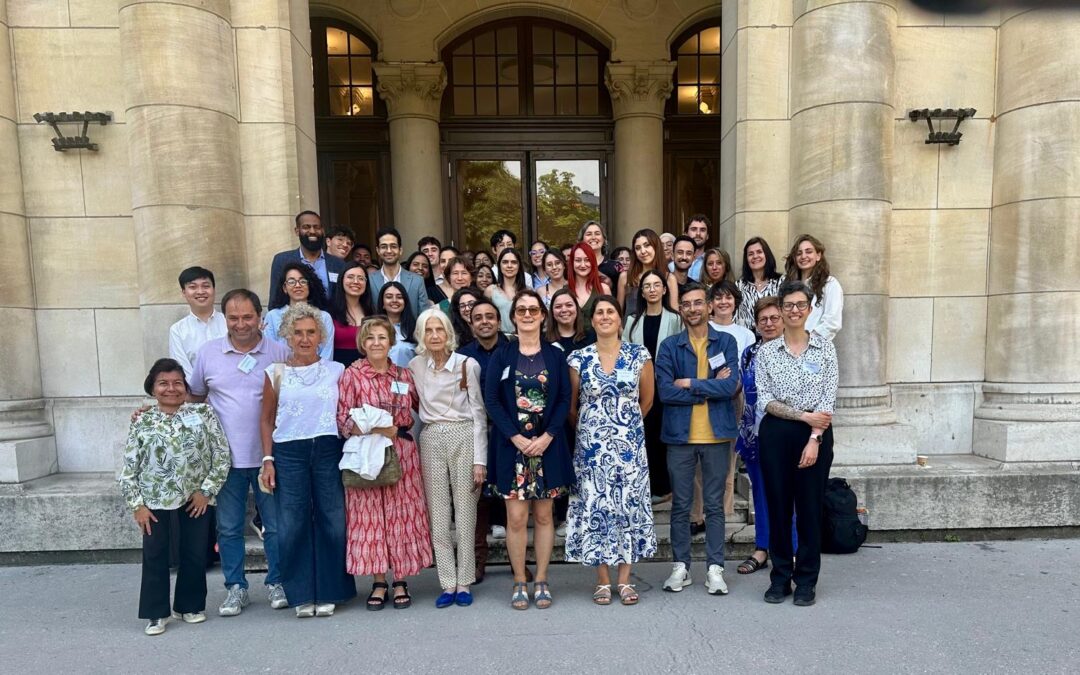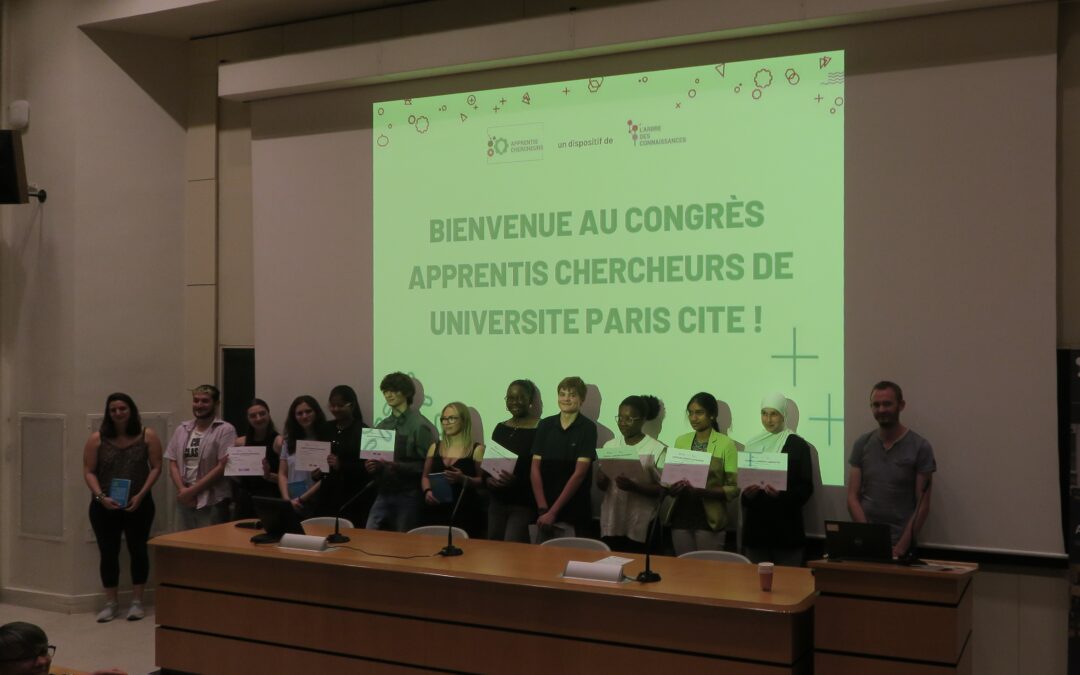_____________________
Lipid nanoparticles by microfluidic method
Lipid Nanoparticles: Microfluidics & Artificial Intelligence – K. Alhareth
Nanoparticle preparation by microfluidics is proving to be a crucial approach thanks to the high reproducibility of production and the control of synthesis parameters. The microfluidic technique also allows producing nanoparticles at different scales, with production volume ranging from a few hundred microliters to several tens of liters, depending on the equipment.
At UTCBS, we use microfluidics for the development, preparation, and functionalization of liposomes. Different production parameters and conditions have been studied: lipid composition, molar ratio, concentration, flow conditions and chip geometry.
The development of this approach for nanoparticles preparation by advanced and automatable technologies, such as microfluidics, is in perfect synergy with the application of artificial intelligence (AI) tools. In this project, the complexity, quantity and quality of data encourage i) the use of design of experiments (DoE) to design series of tests, ii) the automation of data collection, transformation and visualization, iii) and the development of models based on artificial neural networks (ANN) to predict nanoparticle physicochemical properties.
Microfluidics and AI – assisted preparation methods allowed to optimize the formulation and the production of liposomes and would certainly accelerate the development and clinical transfer of nanoparticle-based drugs.

Microfluidic liposome manufacturing: Development and optimization using experimental design and machine learning
- Rebollo R, Oyoun F, Corvis Y, El-Hammadi MM, Saubamea B, Andrieux K, Mignet N, Alhareth K. Microfluidic Manufacturing of Liposomes: Development and Optimization by Design of Experiment and Machine Learning. ACS Appl Mater Interfaces. 2022 Sep 7;14(35):39736-39745. doi: 10.1021/acsami.2c06627.
- Huiyu Chen and Khair Alhareth, « Optimization of the ethanol removal step of liposome production using microfluidics. », Oral presentation, the 6th EMJMD NANOMED WORKSHOP, Rio-Patras, Greece, July 2023.
- Georgia Hanley, Pauline Chavrier, Mattia Tiboni, Luca Casettari, Khair Alhareth, Karine Andrieux, « From thin-film hydration to microfluidics: a translational approach for the preparation of liposomes functionalized with a peptide isolated from VAR2CSA for placenta targeting. », Poster, the 6th EMJMD NANOMED WORKSHOP, Rio-Patras, Greece, July 2023.
_____________________
À lire aussi

October 2025 – Thesis defense at UTCBS: Mitta PIERRE
On October 1st, 2025, Mitta PIERRE successfully defended her doctoral thesis entitled “Nanoformulations of antioxidant active ingredients for ophthalmic administration in the prevention of age-related macular degeneration (AMD)” supervised by Pr. Christine CHARRUEAU and co-supervised by Dr. Diana LAMAA
September 2025 – [Keynote research] Nathalie Mignet,Head of Laboratory, Nanomedicines and lipid nanoparticles for nucleic acid delivery
[Keynote research] Nathalie Mignet, Nanomedicines and lipid nanoparticles for nucleic acid delivery

July 2025 – Workshop du master erasmus mundus Nanomed
Workshop du master erasmus mundus Nanomed

June 2025 – Université Paris Cité’s Apprentis Chercheurs conference was held last June, with UTCBS taking part.
Université Paris Cité’s Apprentis Chercheurs conference was held last June, with UTCBS taking part.
